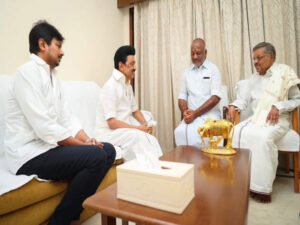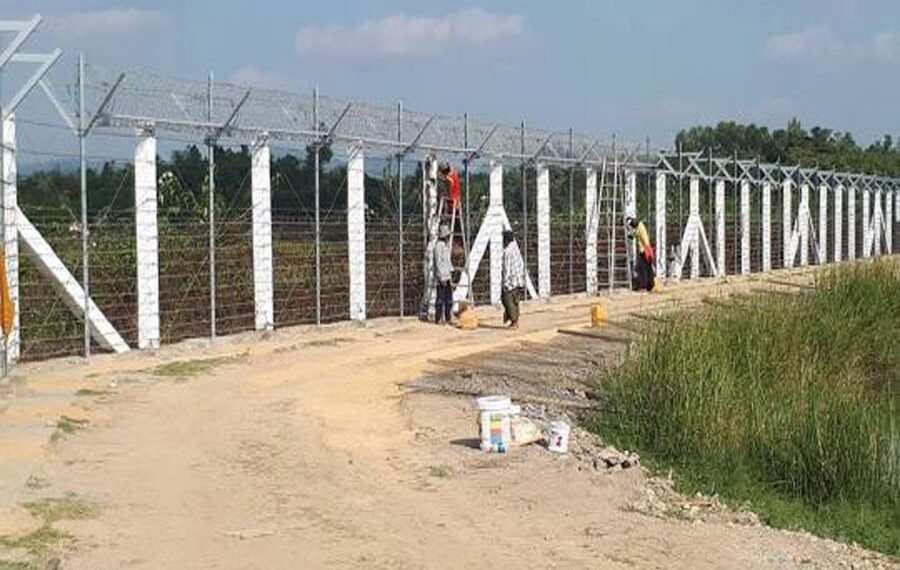With just days left in its ultimatum, the UNC accuses the government of ignoring indigenous rights and violating international norms.
BY PC Bureau
August 1, 2025: The United Naga Council (UNC) has issued a stern warning to the Centre, threatening to resort to “extreme” measures if their 20-day ultimatum, issued on July 22, is ignored. The ultimatum demands the immediate rollback of the abrogation of the Free Movement Regime (FMR) and an end to the ongoing border fencing along areas the Naga groups describe as “ancestral homeland.”
In strong language, the Naga groups asserted that the government’s unilateral decisions on the Indo-Myanmar border issue — particularly the termination of the FMR and the construction of fencing and demarcation works — not only ignore the consent of local communities but also violate international norms. They cited India’s endorsement of the United Nations Declaration on the Rights of Indigenous Peoples (UNDRIP), highlighting breaches of Articles 8, 26, and 36, which affirm indigenous peoples’ rights to their lands, culture, and cross-border relations.
READ:  OPS–Stalin Deal? Buzz Grows in Chennai Political Circles
OPS–Stalin Deal? Buzz Grows in Chennai Political Circles
The Free Movement Regime had allowed people living in border villages of India and Myanmar — many of whom belong to the same ethnic communities — to travel up to 16 km across the international border without a visa. Its abrogation has triggered widespread resentment among the Nagas, who have historically resisted the imposition of artificial boundaries on their ancestral territory.
The Naga bodies argue that the ongoing fencing initiative is being carried out without meaningful consultation with those directly impacted. They fear the fencing will permanently divide Naga communities living on both sides of the border and erode their cultural and social cohesion.
UNPO @forum_naga delivered a joint statement at EMRIP, raising ongoing rights violations against the Naga people—including border fencing, the end of the Free Movement Regime, AFSPA, and a stalled peace process. More via the link in bio. pic.twitter.com/SHwJTUg1lM
— Unrepresented Nations and Peoples Organization (@UNPOintl) July 25, 2025
Over the past few months, the Naga organisations have staged a series of protests to register their opposition. These include press briefings, public demonstrations, rallies in hill districts, picketing of government offices in Naga-majority areas, and submission of memoranda to state and central authorities. Despite these efforts, they say, the government has failed to respond with any seriousness.
Clear Demands, Dire Warning
The ultimatum was jointly issued by four influential Naga civil society organisations — the United Naga Council (UNC), the Naga Women Union (NWU), the All Naga Students’ Association, Manipur (ANSAM), and the Naga People’s Movement for Human Rights–South (NPMHR-S). It was addressed to Prime Minister Narendra Modi and Union Ministers Amit Shah, S. Jaishankar, and Rajnath Singh, and sent via Manipur’s Governor Ajay Kumar Bhalla.
In the joint ultimatum, the organisations demanded:
- Immediate revocation of the notification/order related to the abrogation of the FMR.
- Immediate suspension of all ongoing border fencing and demarcation works in Naga ancestral territories.
- Initiation of a time-bound, inclusive, and meaningful dialogue with affected Naga communities and civil society bodies.
READ: All Eyes on Courtroom as `Predator’ Revanna Awaits Rape Verdict
Speaking to Newmai News Network on Thursday, sources from the UNC reiterated that failure to meet these demands would compel the Nagas to “resume our protest movement in a stronger measure across all the Naga hill districts.”
While the UNC did not elaborate on what constitutes “extreme” action, sources within the Naga civil society indicated that it could involve large-scale mobilisations, indefinite shutdowns in hill districts, and direct civil disobedience campaigns.
The developments come at a time when tensions remain high in Manipur over identity, land rights, and representation, with ethnic and regional grievances feeding into larger concerns over the government’s approach to border management and indigenous autonomy.
As the August 11 deadline nears, all eyes are on the Centre’s response — or silence.














